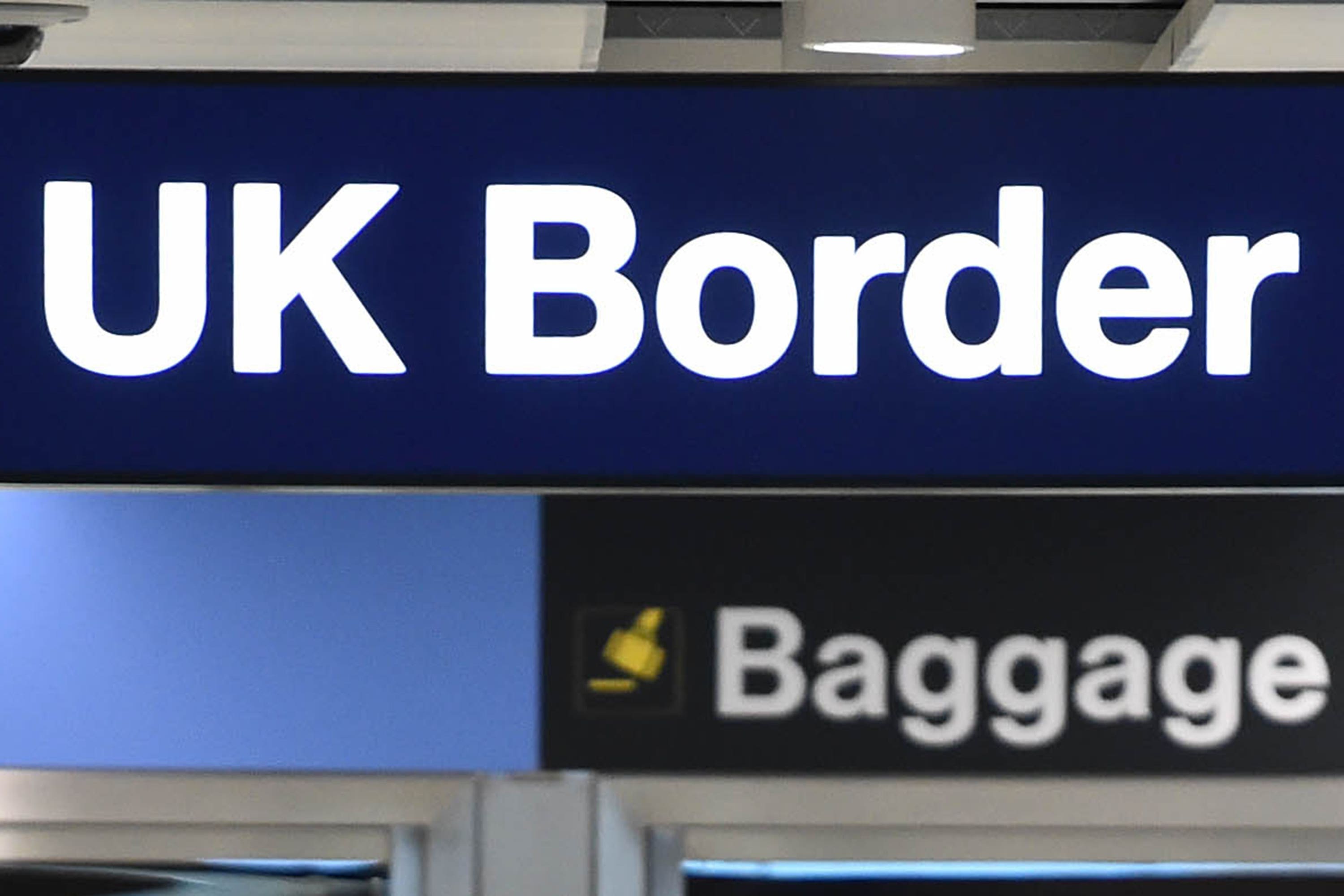Businesses warn Starmer UK needs foreign workers after Labour pledge to cut immigration
Sir Keir Starmer said the net migration figure of 685,000 has ‘got to come down’

Business groups, food producers and a Labour-supporting union have warned Sir Keir Starmer that the UK needs foreign workers to help ease labour shortages, after he vowed to cut immigration.
The Labour leader said the net migration figure of 685,000 has “got to come down” and hit out at Rishi Sunak’s Conservative for failing to cut the numbers.
He said that businesses had become too reliant on workers from overseas and said Labour would train more Britons to do jobs in areas where there were labour shortages.
However, leading business groups and food producers called for “credible” plans to be put forward and warned that skilled migrants would still be needed to fill vacancies.
Matthew Percival, future of work and skills director, at the CBI, said: “The need for work visas is increased by skills and labour shortages and businesses want to see all political parties put forward credible plans to ease shortages and support growth.
“The CBI has long called for a stronger link between shortages and the training that is available. It’s a key part of a more honest conversation about immigration.”

Jane Gratton, deputy director of public policy at the British Chamber of Commerce cautiously welcomed the plans but said it needed clarity on how the system would work and that immigration still had a role in meeting urgent skills needs.
She said: “We need clarity on how the dynamics of this system would work across the UK, to help employers who are struggling to fill around 900,000 job vacancies right now.
“Two thirds of firms are telling us they can’t find the staff they need, people either don’t have the right skills or they just aren’t coming forward at all.
“Immigration has a role to play in meeting urgent skills needs when firms have done everything they can to recruit and train locally.”
Neil Carberry, chief executive of the Recruitment and Employment Confederation, said the policy could have a detrimental impact on Labour’s vow to increase economic growth.
He told The Times: “We currently have a broader shortage of people — not a few specific shortages.
“Labour would cause problems for its own growth goal by restricting firms from access to workers where the alternative might be work going elsewhere.”
The British Meat Processors Association also raised concerns and said the meat industry needed “properly trained migrant workers” who can then fill “stubborn skills gaps where British trainees are either unwilling or geographically unable to take up positions.”
In a blog post on its website, it added: “We need to supplement the UK workforce with overseas workers. But, stifling the ability of the food industry to produce food domestically comes with consequences could be more serious than, for example, stifling the influx of overseas students and their family members.
“If we don’t have the manpower to produce our own food, we have a food security issue that leaves the country more dependent on imports and more vulnerable to supply chain shocks.”
The Labour leader declined to detail the target level for migrant numbers or name a timeline.
He said Labour’s plan would involve legislating to link the immigration system to training, with businesses applying for foreign worker visas having to train Britons to do the jobs.
The Migration Advisory Committee, Industrial Strategy Council and Skills England would be brought together to carry out the plan.
Gary Smith, the head of the GMB union, was also critical of the announcement, he told Times Radio: “We have to have migration in our economy. Clearly, people will expect that to be managed and done properly.
“What I am concerned about is getting into a divisive agenda around migration and immigration, something that is being exploited by the right to try and put fear into people. The truth is we need migrant workers in our economy.”
Join our commenting forum
Join thought-provoking conversations, follow other Independent readers and see their replies
Comments
Bookmark popover
Removed from bookmarks